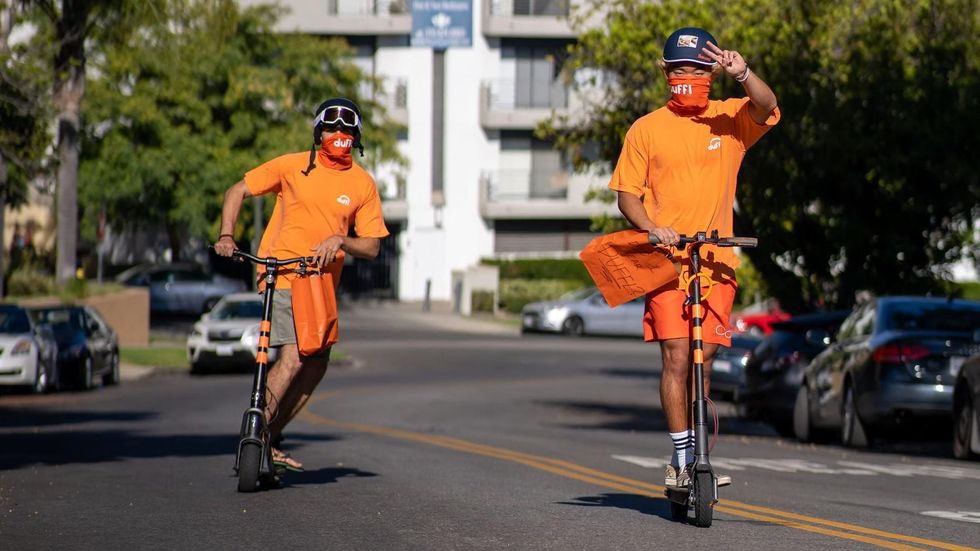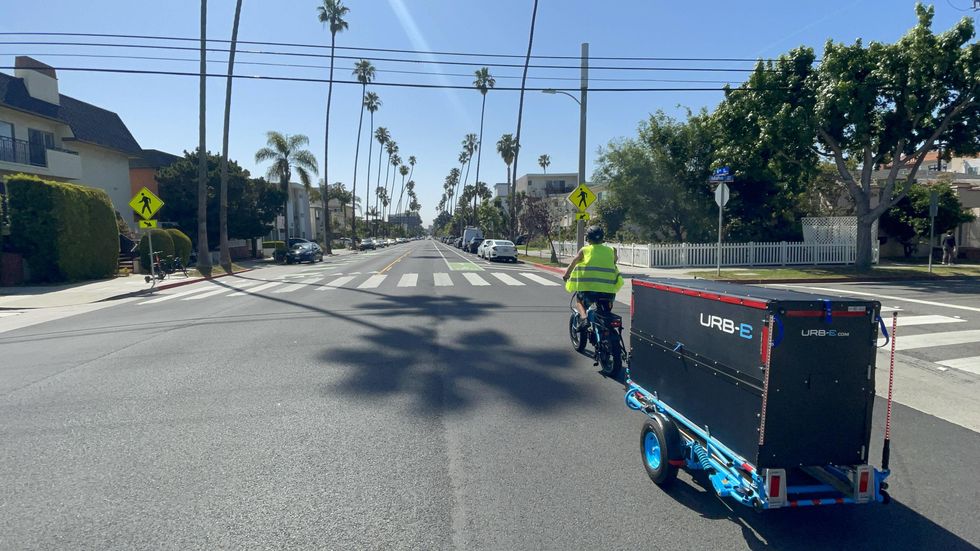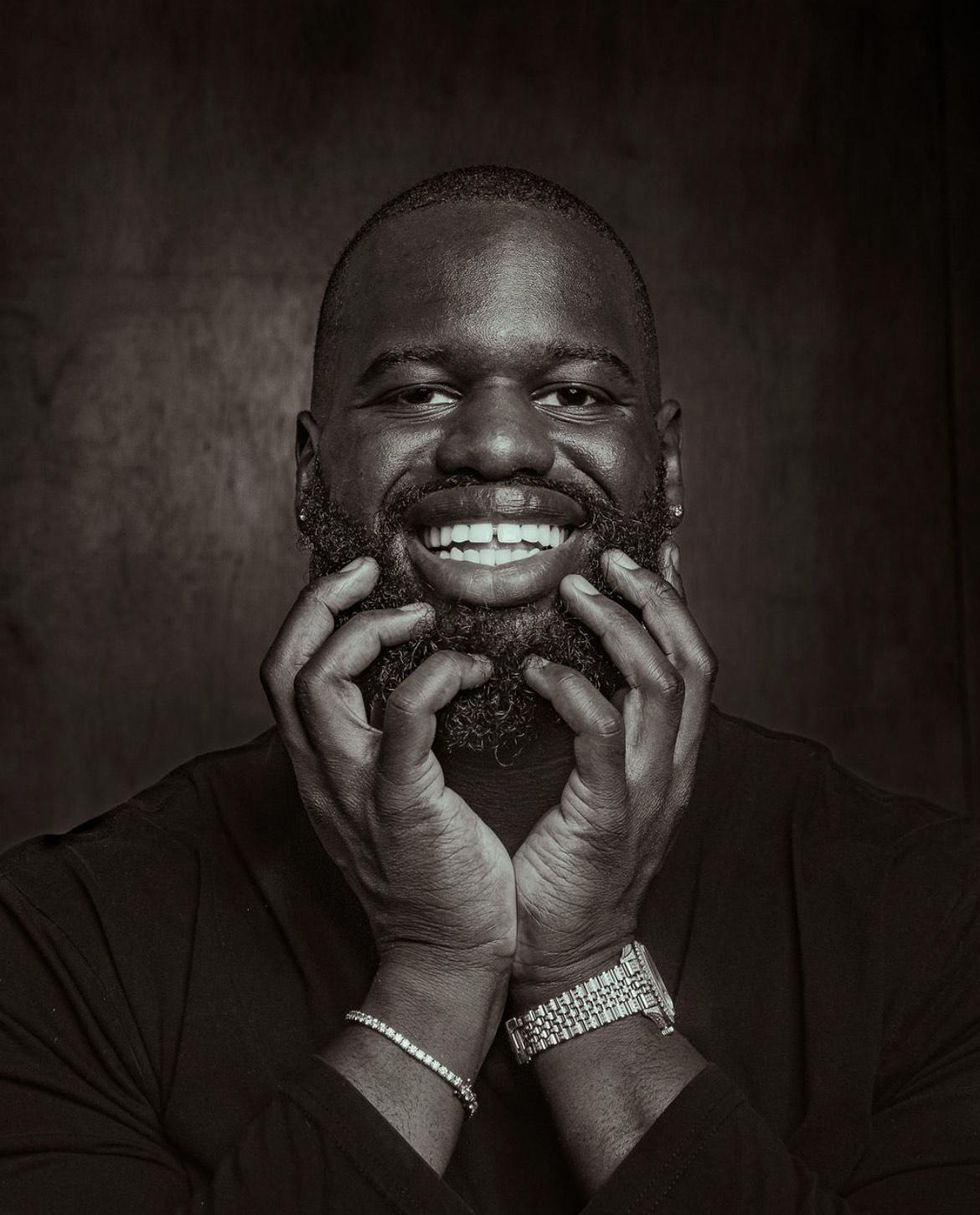

Get in the KNOW
on LA Startups & Tech
X
Photo by Paolo Feser on Unsplash
Rapid Delivery Apps in Los Angeles Are Facing a Reckoning
Samson Amore
Samson Amore is a reporter for dot.LA. He holds a degree in journalism from Emerson College. Send tips or pitches to samsonamore@dot.la and find him on Twitter @Samsonamore.
After a couple of years where pandemic lockdowns made lightning-fast, app-based delivery essential, the industry is facing a shakeout—and apps that promise delivery under 30 minutes are facing an existential crisis.
The so-called “dark store” model – which forgoes the traditional corner store for a sprawling warehouse that delivers through mobile apps – exploded during the pandemic. But many of those companies are now struggling to become profitable, largely because of rising overhead costs.
The Industry and the Challenges
At stake is a multi-billion industry aiming to deliver everything from groceries to convenience items and hot food, through bikes, cars, drones and even robots. Operating from a number of competing platforms, those companies saw sales more than double during the pandemic. Few experts see the industry disappearing entirely, but the sector is widely expected to shrink. The coming months and years will determine which model wins out.
Celia Van Wickel, senior director of digital commerce for analytics and brand consulting firm Kantar Group, told dot.LA she expects the bubble to burst—and soon, as venture firms become more discerning about their investments.
“Valuations are declining [and] money is not being forthcoming to rapid delivery companies,” Van Wickel said. Even as the economic climate becomes more challenging, some companies do have the chance to rise above the fray and gain market share – and satisfy investors – while others could be destined to go bust.
“[Investors] really want to see a profitable model, kind of akin to what we've seen in the dot-com era, where the bubble burst on ecommerce,” Van Wickel said. A lot of money was thrown into these new companies, they weren’t really profitable and then all of a sudden a lot of them collapsed.”
Some venture capital firms were “just investing to invest,” Van Wickel added, to see how the delivery market fared. She predicts they’ll soon become more judicious about who they fund. Burning cash without turning a profit isn’t going to be acceptable in the long term, she added.
Along with slackening consumer demand and less VC investment in the space, nearly every fast delivery company that relies on fulfillment centers, even Amazon, is going to face steep real estate, upkeep and staffing costs. Rapid delivery firms will need to spend big on real estate to operate fulfillment centers across cities that enable them to get to consumers fast.
Local startups Serve Robotics, URB-E, Kwibot and Duffl are trying to rise above the fray by delivering fast, to specific areas, with scooters or drones, but there’s no guarantee of success.

Philadelphia-based GoPuff, one of the largest new rapid delivery services to enter in Los Angeles alongside DoorDash, Instacart and Uber (which also offer convenience delivery in addition to food) depends on having quick access to warehouses throughout the region. It bought liquor store chain BevMo in a bid to gain access to lucrative (and hard- to- get) liquor licenses and warehouses. It aims to save money by installing micro-fulfillment centers “within almost every” BevMo store that can service deliveries, its CEO told the L.A.Times. Still, it laid off 10% of its workforce in July after cutting about 3% in March, and shut 76 warehouses. GoPuff originally had plans to go public in mid-2022 at a $15 million valuation, but shelved them.
But GoPuff is not alone. Instacart cut its valuation forecast by 38% in March citing “poor market conditions,” and international rapid delivery startups like Gorillas, Getir and Zapp have also cut staff recently.
The layoffs suggest that rapid growth may no longer be enough.
“The GoPuff CEO basically said, ‘hey, we were getting a lot of investments by just showing top line incremental growth,’ they were growing customers and growing markets and that was okay enough for investors in 2021,” Van Wickel told dot.LA. “But now they're being pressured to really look at how their company is profitable [and] they're being asked to do this very quickly, or their investment will not be forthcoming.”
GoPuff pointed dot.LA to a recent shareholder letter that said it is “already driving 76% [year-over-year] sales growth for the core business.”
“GoPuff is the only company in this space that has proven it can be profitable at a city and regional level,” co-founders Yakir Gola and Rafael Ilishayev wrote. “We are now targeting full company profitability in 2024 while maintaining a strong cash balance throughout.”

The Opportunity
Despite the headwinds, the rapid delivery industry “feels like it's here to stay,” said Alex Vasilkin, co-founder and CEO of Cartwheel, a Hollywood-based startup that makes delivery management software and recently raised a $3 million seed round in April.
“There’s all these dark kitchens opening, there are all these different startups popping up with drone delivery, and scooters delivery and hyperlocal, 15-minute delivery so I feel like there’s more options for customers and so far, we've seen it getting bigger and bigger,” Vasilkin said. Cartwheel works mainly with restaurants, but is looking to find “very big partners in mostly the alcohol space,” its co-founder Magdim Metshin told dot.LA.
The need for rapid delivery isn’t likely to disappear so long as people decide they need items fast and can’t make the trip themselves. The question is now “which companies can iron out their paths to profitability before they’re forced to go bankrupt?,” Van Wickel said.
“I think there's a balance between what the consumer wants and what behavior’s going to change,” she added. “To me, it's all about on-demand. So we're changing the model to an on-demand model… it’s changing the trip occasions out there from stocking up to more grab-and-go convenience models.”
Startups that seem poised to weather the storm are the ones that can control every aspect of the business – including supply, warehousing, distribution and, crucially, their apps. Usually, they’re seeking buyouts from larger companies that have existing infrastructure in place for this exact reason.
“I don’t think we have quite a winner yet; I think there’s [companies] that are more set up to win,” Van Wickel said, adding that it’s mostly “the companies that do have some cash on hand today to continue to iterate their business models.”
From Your Site Articles
- Los Angeles Delivery Apps News - dot.LA ›
- Duffl Delivery Service Brings Short Wait For Food - dot.LA ›
Related Articles Around the Web
Samson Amore
Samson Amore is a reporter for dot.LA. He holds a degree in journalism from Emerson College. Send tips or pitches to samsonamore@dot.la and find him on Twitter @Samsonamore.
https://twitter.com/samsonamore
samsonamore@dot.la
Spencer Dinwiddie’s Web3 Social Media App Just Raised $26M
06:00 AM | June 07, 2022
Image courtesy of Calaxy
Calaxy, a Web3 social media app co-founded by NBA player Spencer Dinwiddie, has raised $26 million in new funding, the company announced Tuesday.
The HBAR Foundation and blockchain gaming company Animoca Brands co-led the raise, with participation from Ethereum scaling platform Polygon. The fresh funding brings Calaxy’s total raised to just shy of $34 million following a $7.5 million seed round last year.
Los Angeles-based Calaxy lets creators sell their own crypto tokens to fans, who can redeem the tokens for exclusive content, video messages and other forms of access to those creators. The company has essentially attached Web3 technology to validated creator economy models like Patreon, Cameo and OnlyFans, Calaxy co-founder and CEO Solo Ceesay told dot.LA, with the idea of getting people to use crypto in a way that’s familiar.

New Calaxy CEO Solo Ceesay.
Photo courtesy of Solo Ceesay
“It's meant to be quite intuitive,” Ceesay said. “It's meant to be something that doesn't feel like you're opening a brokerage account and investing in a creators’ cryptocurrency.”
For example, the creator tokens on Calaxy are initially priced one-to-one with U.S. currency—so buying 20 of Dinwiddie’s coins on the platform would cost a user $20. Eventually, the company will allow creators to opt into dynamic pricing, “but we want to make sure that journey is walked when the creator's fan base is ready,” Ceesay noted. Calaxy operates on Hedera Hashgraph, a distributed ledger technology that is an alternative to blockchain.
Dallas Mavericks guard Dinwiddie has established himself as one of the NBA’s earliest adopters of cryptocurrency—having notably converted a $34 million contract extension with the Brooklyn Nets in 2018 into a digital investment vehicle.
After initially serving as Calaxy’s CEO, Dinwiddie has now moved into an executive chair role at the startup; Ceesay, a former investment banker who became Calaxy’s chief operating officer in 2020, is succeeding Dinwiddie as CEO.
The 15-person company’s app is expected to emerge from beta testing this summer. Calaxy says it has lined up around 200 creators, celebrities and influencers for its platform, including Dallas Cowboys running back Ezekiel Elliot, Los Angeles Lakers center Dwight Howard and singer Teyana Taylor.
From Your Site Articles
Related Articles Around the Web
Read moreShow less
Christian Hetrick
Christian Hetrick is dot.LA's Entertainment Tech Reporter. He was formerly a business reporter for the Philadelphia Inquirer and reported on New Jersey politics for the Observer and the Press of Atlantic City.
J.J. Abrams on Diversity in Star Wars, Bad Robot: 'I Can't Tell You How Much it's Benefited Our Business'
01:46 PM | January 30, 2020
Filmmaker J.J. Abrams and his wife Katie McGrath examined the production company they founded -- Bad Robot -- and realized it was mostly white. Mostly male. And the duo set out to change how they recruit new employees.
Abrams and McGrath mandated that the pool of people they interview for jobs be more representative of the population. Now over 50 percent of the staff is female and over 40 percent are people of color, according to McGrath. "I can't tell you how much it's benefited our business," said Abrams.
When he was asked to direct "Star Wars: The Force Awakens," Abrams said he felt a responsibility to cast actors who were as diverse as possible. The four leads include someone who is Latinx, a Nigerian-Londoner, a white woman, and one white man. "I'm not preaching, but we'll bring our values as much as we can to a project," said Abrams.
McGrath was one of the founders of the Time's Up movement that started in 2018 after the dethroning of producer Harvey Weinstein rocked Hollywood. She implored an audience comprised largely of white males at The Upfront Summit to do more to improve diversity at their own companies."This is not complicated," said McGrath. "You have tactics for every other business outcome you want to reach, so have one for this."
McGrath noted that by 2050, the U.S. will be a minority-majority country. Not having a workforce that represents the demographics of consumers is bad for business. "You're just going to miss a ton of sh**," she added.
Read moreShow less
Ben Bergman
Ben Bergman is the newsroom's senior finance reporter. Previously he was a senior business reporter and host at KPCC, a senior producer at Gimlet Media, a producer at NPR's Morning Edition, and produced two investigative documentaries for KCET. He has been a frequent on-air contributor to business coverage on NPR and Marketplace and has written for The New York Times and Columbia Journalism Review. Ben was a 2017-2018 Knight-Bagehot Fellow in Economic and Business Journalism at Columbia Business School. In his free time, he enjoys skiing, playing poker, and cheering on The Seattle Seahawks.
https://twitter.com/thebenbergman
ben@dot.la
RELATEDTRENDING
LA TECH JOBS


